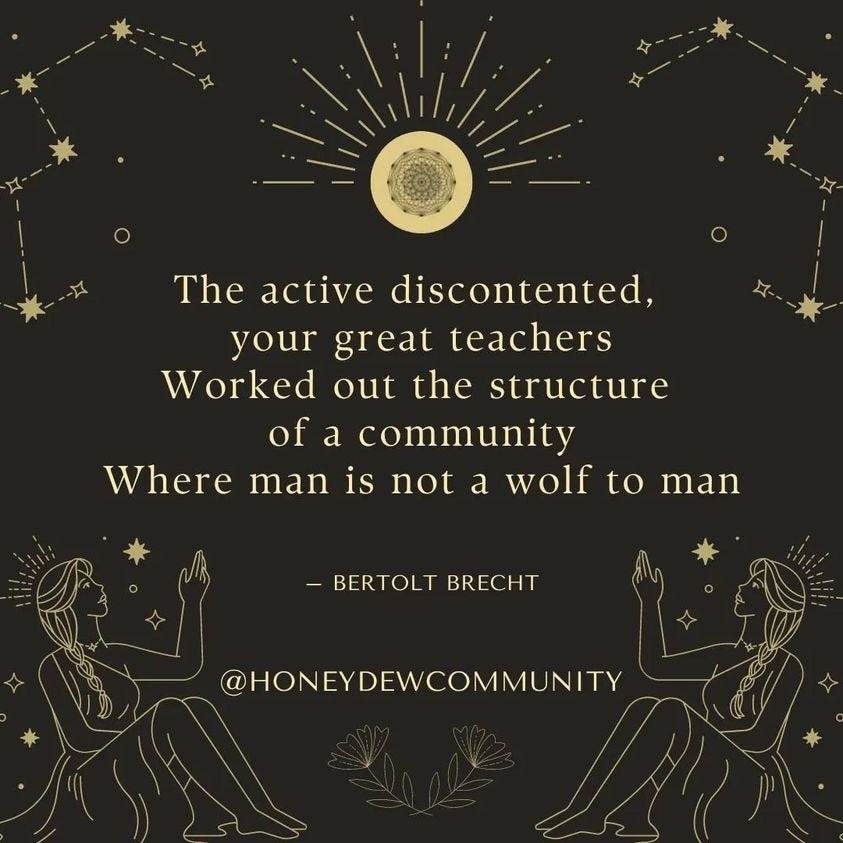The Active Discontented
On being neither a wolf nor a lamb
Homo homini lupus est. ‘Man is a wolf to man.’ It has become the defining dictum of our age – that humans are predatory animals, in perpetual competition, regarding one another with mutual suspicion. This belief about ‘human nature’ actually tells us more about our culture than it does about nature itself. It is, at best, a partial view of how humans behave in society, and reflects the trajectory of our recent history.
Over the last 50 years, our punitive political culture has drawn inspiration from Thomas Hobbes, who quoted this Latin phrase to advocate his ideology of fear and control. It is a ruthless creed, which regards generosity as naivety and gentleness as weakness; like Andrew Tate, it thinks man ought to be a wolf rather than a shepherd. Yet it is misguided to assume that not being a wolf means that you are a lamb.
Indeed, the ‘active discontented’ are not meek – we seek to rewrite the human story, by reimagining social relations. Against the illusion of scarcity, we offer a vision of shared flourishing, which involves a rediscovery of older traditions of community. Intriguingly, the narrative that Hobbes manufactured is itself a twist on the original Latin phrase, from the Roman poet Plautus: Lupus est homo homini, non homo, quom qualis sit non novit. ‘One man to another is a wolf, not a man, when he doesn’t know what his character is.’
In other words, fear and distance make us believe that we are surrounded by wolves, when in fact they are simply other forms of ourselves. In community, we are able to break down these misconceptions. When we eat together, we celebrate the natural abundance that is all our birthright. When we commune together, we begin to know each other as we know ourselves. And as we learn to trust each other, we are able to direct our energy to creating more meaningful and soulful lives.
(The translation of Brecht’s poem is from the excellent Willett & Mannheim edition, Poems: 1913-56, which is inexplicably out of print.
Image design by Honeydew’s creative director, Emma Bridget Byrne.)


